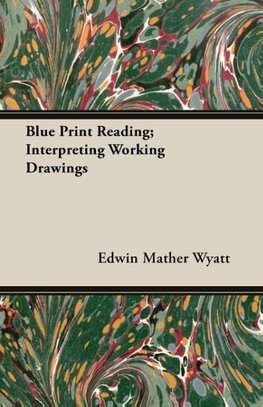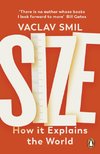
-
 Anglický jazyk
Anglický jazyk
Blue Print Reading; Interpreting Working Drawings
Autor: Edwin Mather Wyatt
This book is the result of several years teaching of blueprint reading in night schools and several years teaching of drafting preceding used for three years in blueprint and mimeographed tried out. In it. The material was form. In this form it was thoroughly... Viac o knihe
Na objednávku
30.51 €
bežná cena: 33.90 €
O knihe
This book is the result of several years teaching of blueprint reading in night schools and several years teaching of drafting preceding used for three years in blueprint and mimeographed tried out. In it. The material was form. In this form it was thoroughly preparing it for book form the drawings have been carefully redrawn and the text improved upon as ex- perience suggested to be desirable. Essentially it is, however, a tried text, one that has been used to teach the reading of drawings to one class of mixed trades, one class of ship carpenters, two classes of house car- penters, and one class of machinists. It has been designed to suit as wide a range of trades as possible. Usually each new principle is illustrated by example. both a machine and an architectural In recognition of the principle that we learn by doing a number of drawings are included to give practise in reading. At the end of each chapter a number of questions are placed, a few for the purpose of re- view, but more to stimulate the study of the drawings. The study of mechanical drawing has long been recognized as a sure method of learning to read draw- ings. The Author knows it to be effective but round about, long and tedious. The Author finds shop sketching just as effective and much quicker. It is essential that students have some method of expression of the principles discussed in the text and shop sketching provides this admirably. When time permits the book can well be supplemented with the study of many blueprints supplied by the teacher or the students and much more sketching than called for herein can also be effectively required. The Author believes the book to be well suited to individual study aside from its use as a class text. When so used he urges that the shop sketching be not neglected, and that the student seek criticism of his drawings by some draftsman. Most of the drawings used herein have been de- signed especially to illustrate the text. The drawings For 8 Bench Grinder, however, are taken from the excellent little books First Year Lathe Work and How to Run a Lathe published by the South Bend Lathe Works. The Author gratefully acknowledges the courteous privilege granted him to use them in this work. THE AUTHOR. TABLE OF CONTENTS Page Preface 3 I Introduction 7 II Kinds of Drawings III The Theory of Orthographic Projection IV Meaning of Various Kinds of Lines 17 V Foreshortened Lines, Inclined Surfaces, Auxiliary Projection. . 9 12 22 VI Scale Drawing, Dimensions 27 VII Breaks, Representing Drawings as Broken 35 VIII Sections 38 IX Bolts, Screw Threads, Machining or Finish 43 X Rivets Structural Steel 46 XI Architectural Conventions 49 XII Study of a Set of House Plans 55 XIII Study of the Bench Grinder 71 Mechanical drawing is a universal language under- stood by the artisans of all nations. The drawings made by a skillful French draftsman are just INTRODUCTION as read- able to an American draftsman as those made by his fellow draftsmen though he may know no tongue but his native one. It is a language with rules of gram- mar just as any other language, and a draftsman is a good or poor draftsman very largely or violates these rules. as he observes It is a valuable business asset to many of us to be able to understand and speak French, Spanish or some other language than our own. It may be of no value to us to be fluent writers or speakers in the tongue. Just so, a great many men in this great industrial age are finding it necessary to understand the great uni- versal language of mechanical drawing...
- Vydavateľstvo: Envins Press
- Rok vydania: 2007
- Formát: Paperback
- Rozmer: 216 x 140 mm
- Jazyk: Anglický jazyk
- ISBN: 9781406723960











 Nemecký jazyk
Nemecký jazyk 
